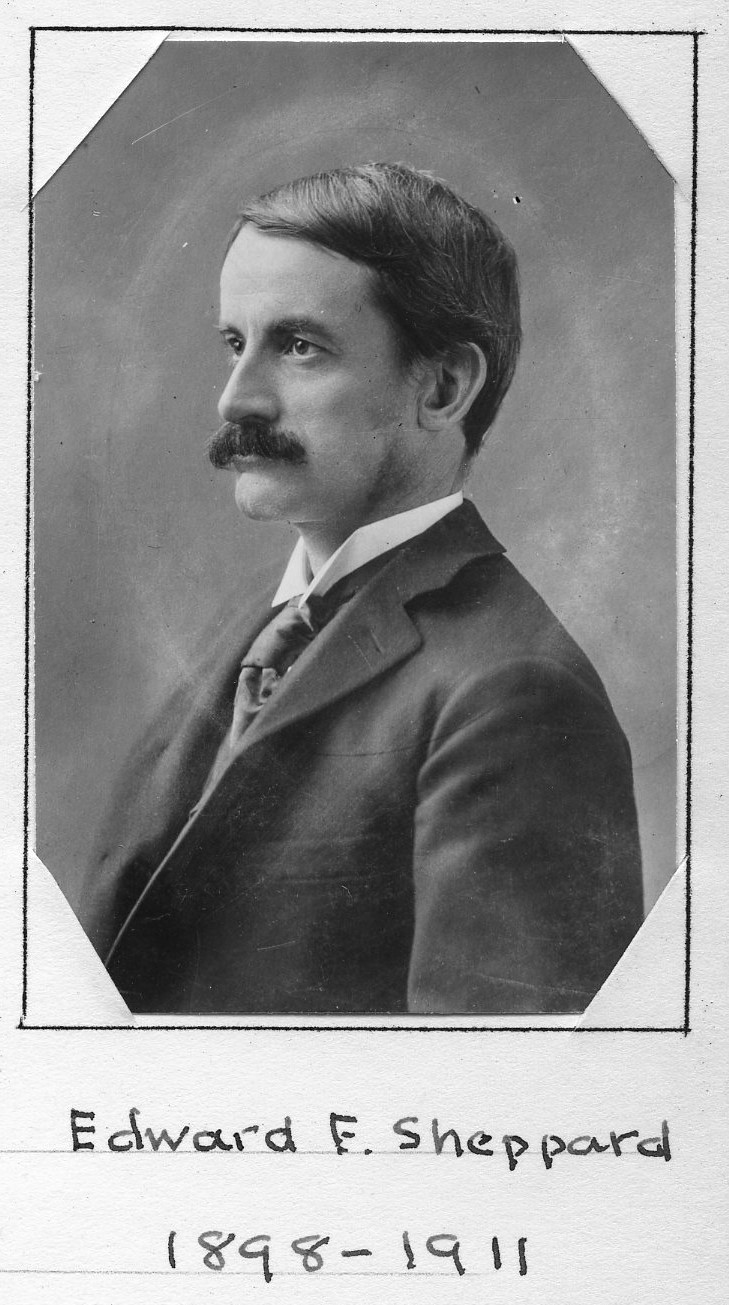Lawyer
Centurion, 1898–1911
Born 23 July 1850 in New York (Manhattan), New York
Died 28 July 1911 in Lake George, New York
Buried Green-Wood Cemetery , Brooklyn, New York
, Brooklyn, New York
Proposed by Paul L. Ford and Carl Schurz
Elected 1 October 1898 at age forty-eight
Proposer of:
Century Memorial
There is enormous pathos in the life of Edward Morse Shepard; there is also inspiration. He was the loved friend of many here; and those who scarcely knew him are deeply moved alike by his admirable motives, his principles of endeavor, his ideals; also by his accomplishment of civic good; likewise by his failure to obtain obvious personal success.
Who shall surely probe the grounds of human action, or set forth the motives of a subtly reasoning man? But for Edward M. Shepard we can say with an inclusive certainty that from the beginning of his life to the end his desires were honorable and his ideals beneficent. In his own profession of the law his career was stainless; and the hopes and standards of conduct which he felt within himself, as they wrought themselves out in his own actions, so they took some recoil from his observation of the lack of public spirit and the absence of public influence from the lives of many of his most successful professional brethren. It was impossible for Shepard to live in a community and not strive to free it from obvious evils. He could not help devoting to this end his energies and the best powers of his mind. Only according to temperament and to the inner processes of a man’s own nature can his words and conduct and methods of achieving project themselves in action. Shepard saw, spoke, and acted admirably, winningly, often convincingly: had his utterances been simpler, they would have been more largely effective with simple-minded men. But he did much good which Brooklyn and New York will not cease to thank him for. Through such exertions as Shepard’s in the punishment of the McKane Ring, a community is kept out of the muck. This is a single instance of the devotedness and consecration which he carried into every civic and private service that came to him to do.
Consciousness of purity of principle, and of good palpably accomplished, with Shepard himself, as with us who mourn for him, both softened and aggravated the pathos of his public career. He was not the apostle of unsuccess, no leader of lost causes; for much that he upheld is bound somehow to triumph. But he did suffer constant personal defeat: he was defeated for the mayoralty of Brooklyn; he supported Bryan for the presidency; he was defeated in his contest for the mayoralty of New York; and most nobly did he incur defeat in the recent senatorial battle. Through the portals of such defeat what hopes may not be discerned! One at least gleamed through the western windows, to this loving, battling, Christian man, as he spoke his last words: “I love you all. God help me to pass through the Valley of the Shadow of Death.”
Henry Osborn Taylor
1912 Century Association Yearbook

